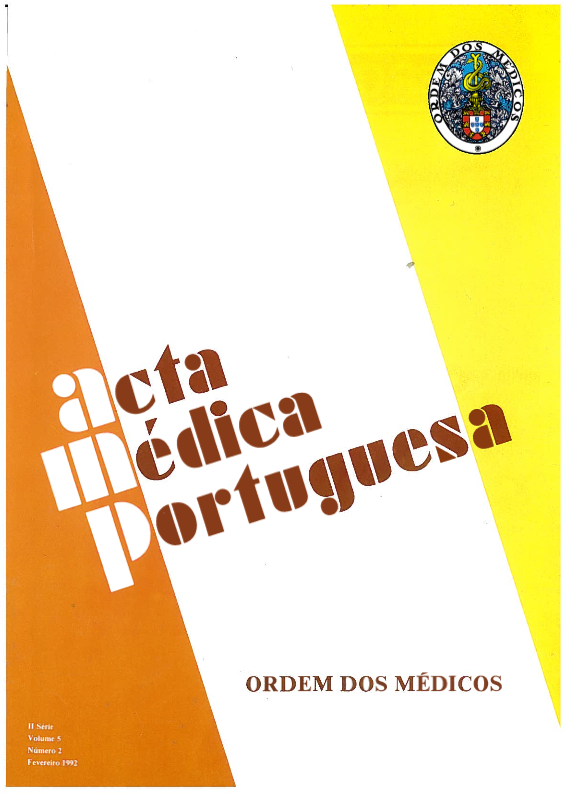Severity evaluation of ventilated patients at a respiratory intensive care unit with the APACHE II system.
DOI:
https://doi.org/10.20344/amp.3199Abstract
APACHE II system, is a simple and inexpensive method to evaluate severity of Intensive Care Patients. In a 2 years period (between 1988 and 1990), grading severity using APACHE II system, was performed on 498 consecutive mechanical Ventilated Patients in a Respiratory Intensive Care Unit. APACHE II was higher in COPD patients, but patients with Pneumonia and Organophosphate Poisoning had higher mortality. Correlating the different components of APACHE II with the results, we verified that Prognosis was not influenced by the Previous Health Status. Mortality was higher with increasing age, in patients with COPD and Organophosphate Poisoning. APS was the most important index for prognosis. Patients with Pneumonia and Organophosphate Poisoning had the highest APS. The Authors conclude that APACHE II is an objective and not time consuming method to evaluate severity in ICU Patients. However indexes measured on the first 24 hours of ICU staying are a result of severity of illness, treatment performed and time elapsed before ICU admission, and, this may be a possible source of bias when comparing different Unit results.Downloads
Downloads
How to Cite
Issue
Section
License
All the articles published in the AMP are open access and comply with the requirements of funding agencies or academic institutions. The AMP is governed by the terms of the Creative Commons ‘Attribution – Non-Commercial Use - (CC-BY-NC)’ license, regarding the use by third parties.
It is the author’s responsibility to obtain approval for the reproduction of figures, tables, etc. from other publications.
Upon acceptance of an article for publication, the authors will be asked to complete the ICMJE “Copyright Liability and Copyright Sharing Statement “(http://www.actamedicaportuguesa.com/info/AMP-NormasPublicacao.pdf) and the “Declaration of Potential Conflicts of Interest” (http:// www.icmje.org/conflicts-of-interest). An e-mail will be sent to the corresponding author to acknowledge receipt of the manuscript.
After publication, the authors are authorised to make their articles available in repositories of their institutions of origin, as long as they always mention where they were published and according to the Creative Commons license.









